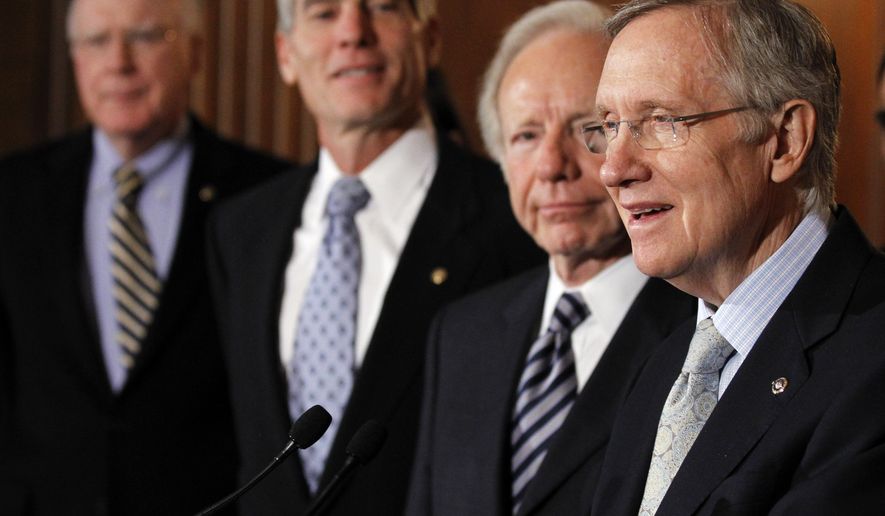Setting the stage for a major social change, the Senate voted Saturday to overturn the military’s policy banning openly gay and lesbian troops, know as “don’t ask, don’t tell,” sending the repeal to President Obama for his signature.
The 65-31vote, with eight Republicans joining Democrats, marks the beginning of the end for the 17-year-old policy, though the Pentagon and White House will need to make certain certifications before the ban officially is repealed.
“We inexorably move to equality,” said Sen. Charles E. Schumer, New York Democrat. “Sometimes it’s painful, sometimes it’s difficult, sometimes we take two steps forward and one step back, but as the great scholar de Tocqueville wrote when he visited America in the 1830s, the thing that separates America from all the other countries of the world is equality always prevails.”
The House has already passed the measure. The bill now will go to Mr. Obama, who campaigned in 2008 on changing the policy and will sign it. The next step will be for the military to complete a readiness review and for Mr. Obama, Defense Secretary Robert M. Gates and Chairman of the Joint Chiefs of Staff Adm. Mike Mullen to certify that the change won’t hurt readiness or unit cohesion.
Republicans said the change could leave the military in worse shape, and pointed to findings in the Pentagon’s massive, long review that some troops said they expected disruptions and would even consider not re-enlisting.
“Don’t think that it won’t be at great cost,” said Sen. John McCain, the Arizona Republican who led the fight against changing the policy. “I’ll never forget being just a few weeks ago in Kandahar, [where] an Army sergeant major with five tours in Iraq and Afghanistan, [at] a forward operating base, said, ’Senator McCain, we live together, we eat together, we sleep together. Unit cohesion is what makes us succeed.’”
Both gay-rights groups and senior Democrats urged Mr. Obama to use his existing authority to halt all investigations and dismissals under the policy while he follows through on its repeal.
One key vote came from Sen. Jim Webb, a Virginia Democrat who was decorated for his service as a Marine in Vietnam and later served as Navy secretary. Mr. Webb said he finally was convinced by the testimony of top civilian and uniformed leaders at the Pentagon that overturning the policy wouldn’t hurt military readiness.
He also secured a statement from Defense Secretary Robert M. Gates that the changes will be managed so as not to to disrupt unit cohesion in the military.
“Without this,” Mr. Webb said, “I would not be voting to repeal this. I have spent my entire life in and around the military, including five years in the Pentagon. With this understanding and with the notion that we need to be putting a policy into place that allows an open way of living among people who have different points of view, I’m going to support this legislation.”
Mr. Gates has repeatedly warned Congress that if it doesn’t take action, he fears that the courts will force repeal on the military, and that would be tougher to manage in an orderly fashion.
The “don’t ask, don’t tell” policy was issued by the Defense Department under President Clinton. After Congress voted to ban gay and lesbian troops, the Pentagon came up with the policy as its way of enforcing the law.
More than 14,000 troops have been dismissed under the ban since 1993. Some of them are eager to return to the service once the policy is completely lifted.
Gay-rights groups that fought for the change said ending the military’s policy will eliminate the last law on the books that mandates discrimination — in this case, being fired for sexual orientation.
The repeal vote followed a year-long study by the Pentagon, which found most troops surveyed were okay with the change, though a majority of Marine combat troops said repeal could hurt their combat readiness.
And three of the four service chiefs have expressed reservations about repeal, though they also said that if it happens, they will follow through on the changes Congress ordered.
• Stephen Dinan can be reached at sdinan@washingtontimes.com.




Please read our comment policy before commenting.